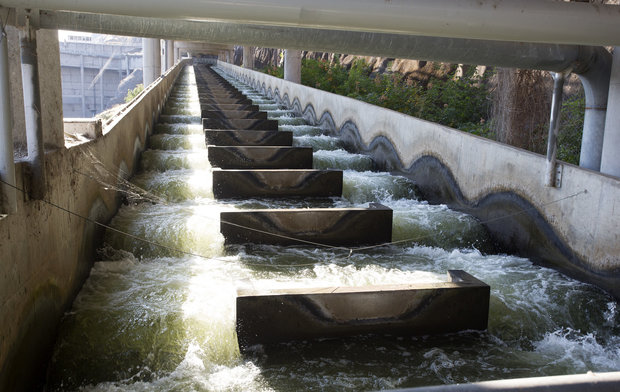forum
library
tutorial
contact

Power Council Members
Have Work Cut Out for Them
by Editorial Board
The Daily Astorian, February 1, 2018
|
the film forum library tutorial contact |

|
Power Council Members
by Editorial Board
|
 Even before Ted Ferrioli and Richard Devlin officially joined the Northwest Power and Conservation Council last month, they were talking by phone several times a week about their upcoming work.
Even before Ted Ferrioli and Richard Devlin officially joined the Northwest Power and Conservation Council last month, they were talking by phone several times a week about their upcoming work.
Two decades in the Oregon Legislature forged those connections. Ferrioli, of John Day, was the longtime Republican Senate leader. Devlin, of Tualatin, was Senate Democratic leader and later co-chairman of the Legislature's budget committee. Said Devlin: "We've always had a pretty good working relationship."
That relationship will be key as the pair move from the 90-member Legislature to the eight-member, four-state council. It comprises two members each from Oregon, Washington, Idaho and Montana.
The council influences billions of dollars in public and private spending on power generation, fish protection and restoration, water use and other areas.
"The job is an intersection with every single public policy issue that affects the quality of life in the upper Columbia River Basin," Ferrioli said.
"The future of the sustainability of communities really depends on our continued access to low-cost, highly renewable hydroelectric power -- and increasingly on alternative energy sources, including wind, geothermal and solar. If you look at the epicenter of all those issues, they all intersect in the upper Columbia River Basin."
Gov. Kate Brown appointed Ferrioli and Devlin to succeed Pendleton lawyer and rancher Henry Lorenzen and former Secretary of State Bill Bradbury as Oregon's representatives.
They have their work cut out for them.
Congress authorized the council in 1980 as an independent agency to assess the Northwest's electricity needs -- planning both for electricity and for protection of fish and wildlife. Congress acted in response to the multi-billion-dollar fiasco of the Washington Public Power Supply System, better known as WPPSS, in which public officials grossly overestimated the region's future demand for electricity and the viability of nuclear power.
Five nuclear plants were started, one was completed and currently operates, and WPPSS now is called Energy Northwest. The region's ratepayers still pay the price for those past bad decisions made by good people.
As Lorenzen left the Northwest Power and Conservation Council on Jan. 16, he warned that state legislators and other policymakers once again were making decisions about renewable energy and other resources on the basis of politics, not the state-of-the-art methodologies developed by the council.
"Our challenge, I believe, is to make certain in the future, to the best we can, that the methodologies that we have developed also are taken into consideration by those entities, those persons who are making those decisions, whether it be the traditional utility managers or the legislators," Lorenzen said.
As veteran legislators with statewide perspectives, Ferrioli and Devlin should be the right people for that task.
Related Pages:
Ferrioli Appointed to Regional Power Council by Richard Hanners, East Oregonian, 10/30/17
Governor Appoints Two Senior Lawmakers to NW Power Planning & Conservation Council by Nigel Jaquiss, Willamette Week, 10/23/17
Gov. Kate Brown to Name Sens. Devlin, Ferrioli to Northwest Power & Conservation Council by Nigel Jaquiss, Willamette Week, 10/20/17
learn more on topics covered in the film
see the video
read the script
learn the songs
discussion forum
